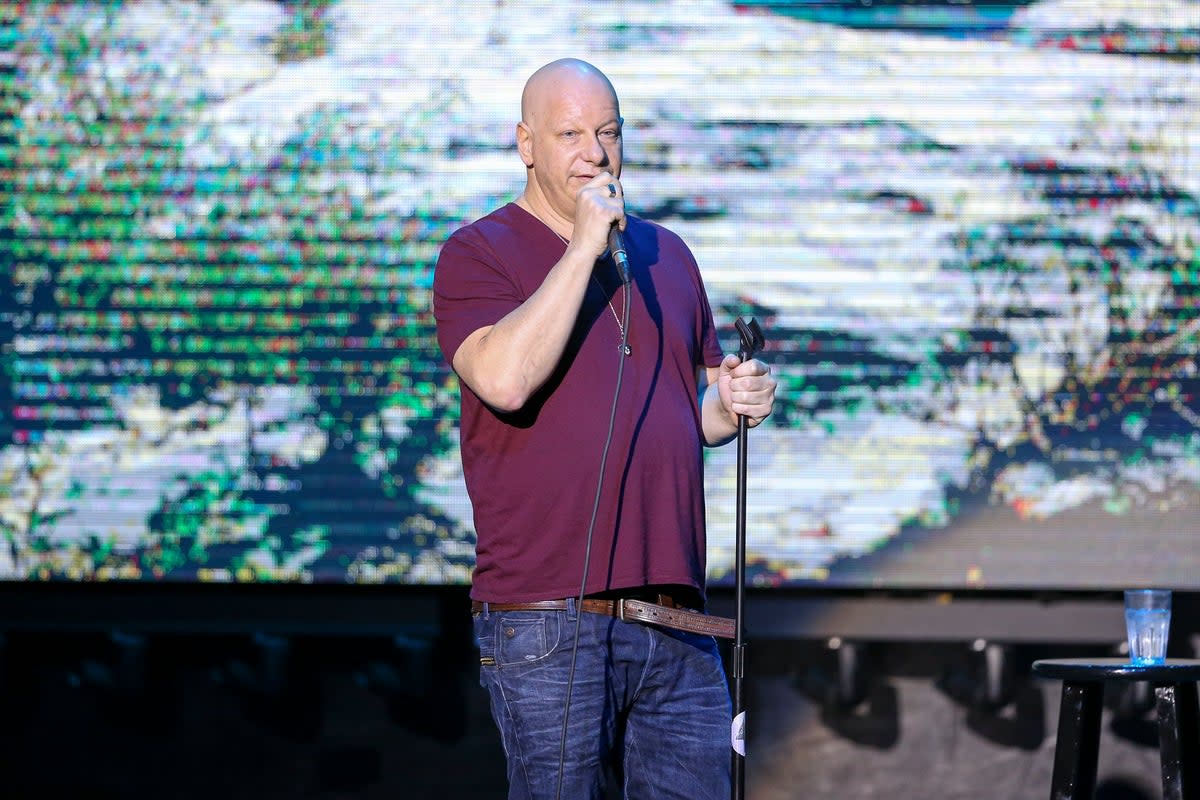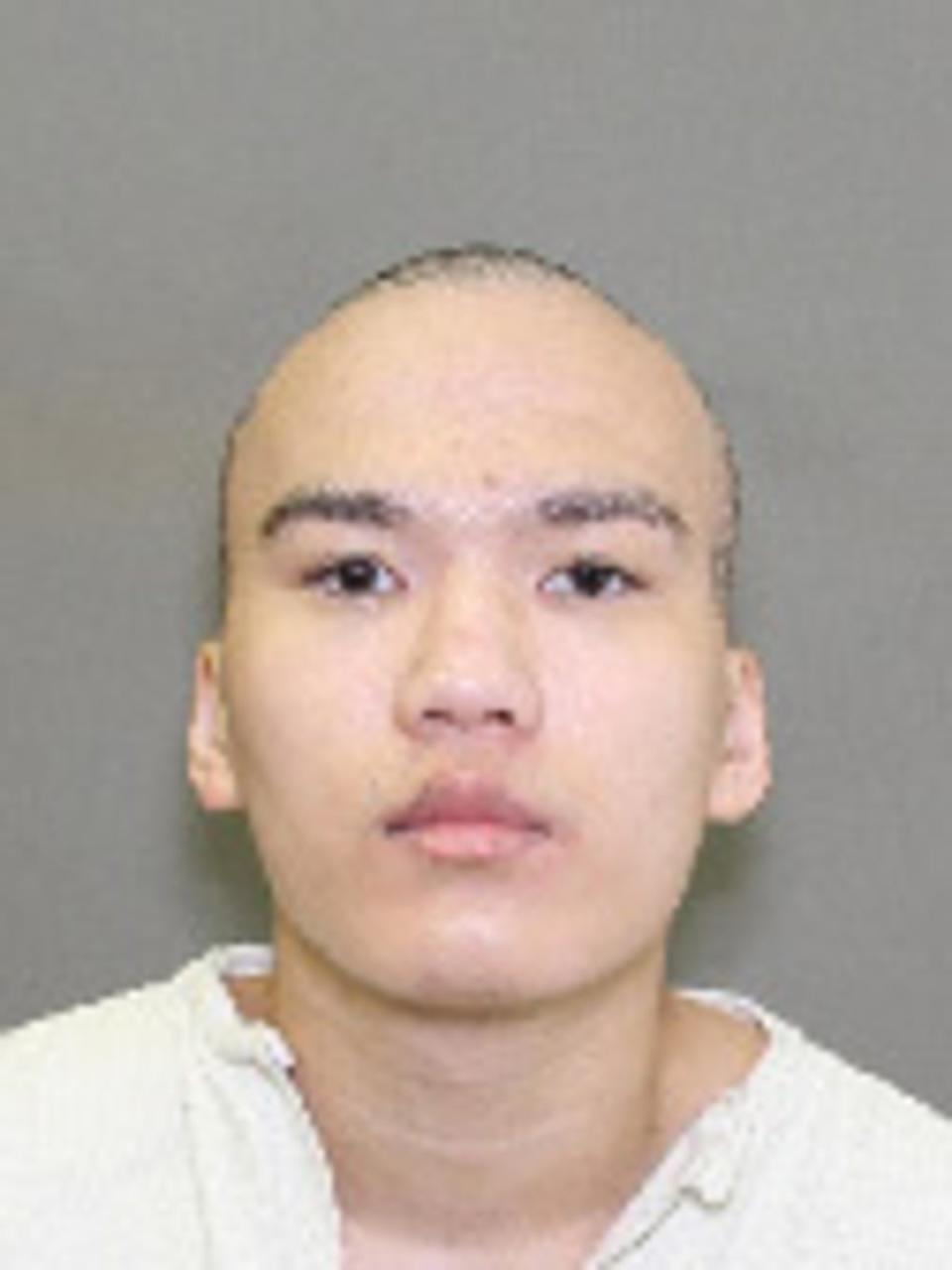How a lost tape from a Jeff Ross comedy special might send a Texas man to the execution chamber

In June of 2015, insult comic Jeff Ross appeared on Conan to promote his latest controversial comedy special, this one filmed inside of a Texas prison earlier that year. The comedian explained that the special, Jeff Ross Roasts Criminals: Live at Brazos County Jail, was an attempt to “put a human face on the inmate in America.”
“If you can laugh at yourself, you’re one step closer to freedom,” Mr Ross told host Conan O’Brien.
For one inmate, Gabriel Paul Hall, who participated in the special, it has been quite the opposite. Unless the Supreme Court chooses to intervene next month in an appeal, unaired tape from the comedy show might end up being the piece of evidence that secures his execution.
‘He express no disgust with his actions’
On 20 October, 2011 in the town of College Station, Hall -- then an 18-year-old high school student -- murdered an elderly Navy veteran Ed Shaar, who had Parkinson’s disease. Hall also severely wounded Mr Shaar’s wife Linda, who was in a wheelchair and had lost a leg to a previous illness, according to court records.

The teen later told police he picked the house at random, and evidence reveals Ed Shaar was scraped, stabbed, cut, and shot in the head at close range, while Ms Shaar was wounded with a dull knife.
After turning himself in, Hall “expressed no disgust with his actions; he stared blankly and seemed happy to explain what he had done,” according to police.
Ms Shaar, who survived, rejected the option of sending Hall to prison for life without parole, the Houston Chronicle reports. The assailant was eventually sentenced to death in 2015.
A ‘f***ing scary dude’
Before he went to trial, Hall was housed in a jail in Brazos County, northwest of Houston.
In February of 2015, jail officials agreed to let Ross, known for his roasts of celebrities and fellow comedians, film a special inside the facility.
Prison leaders, often wary of press attention, seemed eager about the prospect, posting flyers encouraging inmates to sign up, according to Hall’s team’s brief with the Supreme Court. They also, allegedly, failed to warn those inside the jail about any potential legal ramifications for participating in a televised comedy special that would later be broadcast on Comedy Central.
Hall spent 17 minutes speaking with Ross on tape, where the comedian commented on the man’s mental state and character, alternating between mocking him for being a “f***ing scary dude” and appearing “very f***ing Zen” about the prospect of being in prison for murder.
As the baiting continues, Hall appears to try and play along.
“Oh come on, I wouldn’t hurt a fly,” he says.
“Really, what about a human?” Ross responds.
“Ah, they’re annoying,” Hall says.
The exchange never made it into the televised version of the special, but Hall and his attorney’s argue it still did enormous damage to his case and may have tipped the balance towards a death sentence.
A ‘highly prejudicial’ tape
In an August filing to the Supreme Court, Hall’s attorney’s argue jail officials violated his rights by allowing the interview to take place, and state officials compounded this violation by requesting the tape as evidence in the capital punishment trial that followed in 2015.
They argue Brazos County jailers committed the first offense, violating a “no contact” order for Hall barring outsiders from contacting the man without consulting his lawyers. What’s more, according to the appeal, jail officials then failed to warn inmates about the impact of talking to Ross on camera, a situation that left at least one prison supervisor so “immediately uncomfortable” they asked the film crew for a copy of the tape and said it shouldn’t be used in the final special.
In the end, the defence argues, these fears were well-founded. the video tape was “highly prejudicial.”
“The Comedy Central video assumed special importance, because the State could present it as providing special insight into Petitioner’s state of mind about the crime four years after the fact, i.e., whether he was reflective and remorseful,” Hall’s attorneys wrote.
They also claim that Hall’s background growing up “desperately impoverished childhood in a squalid Philippine slum, followed by adolescence in the United States as one of numerous children adopted into a home marked by dramatic verbal and physical abuse at the hands of his adoptive parents,” should be given consideration, along with evidence of brain damage and developmental trauma.
The Independent has contacted Ross and Comedy Central for comment.
‘Extensive’ evidence of a brutal crime
The state of Texas argues in a Supreme Court brief of its own that the Comedy Central tape is far less consequential than Hall is making it out to be, and that his own actions were what secured a death penalty conviction.
At trial in 2015, one inmate testified that Hall spoke of the Shaar murder as “practice for his foster parents.” Another fellow inmate told the jury Hall bragged about using a dull knife “so they would feel it and it wouldn’t cut them like butter.”
The trial also featured recorded excerpts of Hall’s confession to police, where he described enjoying the stabbings and how he killed Mr Shaar with a smile.
On a more technical level, the state further argues that Hall’s Sixth Amendment rights to counsel and fair trial weren’t violated by the comedy special because Ross was not a member of the state seeking incriminating information when they spoke together.
Hall is seeking to “create a novel Sixth Amendment violation out of a pre-trial inmate’s voluntary jailhouse discussion with a visiting comedian he knowingly conversed with on film,” Texas wrote in its brief, adding, “[t]his Court has never held that the accused’s right to counsel requires the State to prevent an inmate from voluntarily communicating with a disinterested third party.”
An unbroken string of Texas executions
Lower courts have rejected Hall’s arguments thus far, and the Supreme Court will consider them in January. The conservative supermajority court has often proved reluctant to overturn death sentences.
During his Conan interview, Ross spoke about his desire to treat those in the criminal justice system as more than just a number or a problem.
"Ninety percent of the people in jail right now are coming out someday," Ross said. "So you have to give them some hope, give them some laughs. We have to humanise criminals. We treat them like dust. A lot of these jails are essentially mental health facilities.”
Since the special aired, the state of Texas has executed 41 people, according to a database from Death Penalty Information Center, and still maintains one of the most active death chambers in the country, only slightly reducing the pace of killings during the pandemic.
It’s clear comedy alone can’t do much to change the criminal justice system, but soon the high court will decide whether it had the power to seal one man’s fate.
The Independent and the nonprofit Responsible Business Initiative for Justice (RBIJ) have launched a joint campaign calling for an end to the death penalty in the US. The RBIJ has attracted more than 150 well-known signatories to their Business Leaders Declaration Against the Death Penalty - with The Independent as the latest on the list. We join high-profile executives like Ariana Huffington, Facebook’s Sheryl Sandberg, and Virgin Group founder Sir Richard Branson as part of this initiative and are making a pledge to highlight the injustices of the death penalty in our coverage.


